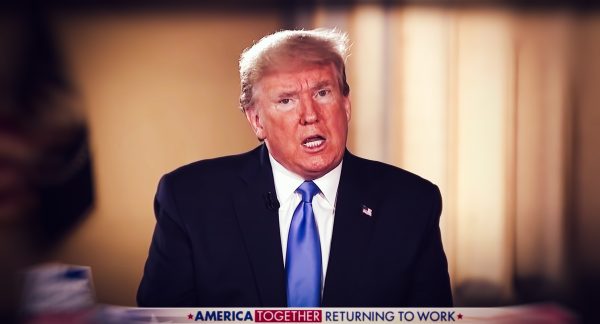The Chinese government faces strong domestic criticism on their accountability and transparency after suppressing early warnings about COVID-19. Several liberal activists — like Tsinghua University Professor Xu Zhangrun, private entrepreneur Ren Zhiqiang and political activist Xu Zhiyong — publicly denounced the ‘crisis of governance’ provoked by Chinese President Xi Jinping’s concentration of power. While these criticisms were silenced, some foreign organisations and governments filed lawsuits demanding compensation for damages caused by the pandemic.
In response, the central government blamed the mishandling on local leadership and fired the party chief of Hubei province, Jiang Chaoliang, and mayor of Wuhan Ma Guoqiang, along with some health officials. After confinement measures contained the virus, Beijing became increasingly aggressive in spreading conspiracy theories and blaming foreigners. The spokesperson of China’s Foreign Ministry crudely blamed the US military for bringing the virus to China during the Military World Games in October 2019.
In the United States, President Donald Trump was unprepared, ill-equipped and overwhelmed in trying to manage the pandemic. After the World Health Organization (WHO) declared a ’Public Health Emergency of International Concern’ in January, he spent more than a month downplaying the threat and delaying diagnostic testing and stockpiling of essential equipment.
In response to criticism from Democrats and medical professionals, Trump focussed his efforts on rewriting the timeline of his response in a distorted and inaccurate manner and blamed the WHO and China for his failure to contain the pandemic. He temporarily halted funding to the WHO because they took China’s claims about the coronavirus ‘at face value’ and failed to share information about the pandemic. Blaming China for the suppression of early warnings, he is calling for an international investigation into the alleged origin of COVID-19 in a Wuhan lab.
The blame game between the United States and China is eviscerating international cooperation and preventing multilateral institutions from fighting the pandemic. Despite the threat to global security, the UN Security Council (UNSC) is not mobilising global resources against the pandemic.
The UNSC passed Resolution 1308 on HIV/AIDS in Africa in July 2000, transforming a public health concern into an international security matter by recognising the importance of a coordinated international response. The UNSC’s actions helped establish the Global Fund for AIDS, Tuberculosis, and Malaria in 2002. It also passed Resolution 2177 in September 2014, declaring the Ebola outbreak in West Africa a ‘threat to international peace and security’. The resolution empowered the UN secretary-general to create the UN Mission for Ebola Emergency Response — the first UN emergency mission directed at a public health crisis.
But the UNSC failed to issue a resolution or declaration this time. China held the rotating presidency in March and insisted that its involvement in COVID-19 was unwarranted and an intrusion into the sovereign affairs of UN member states. China’s UN envoy explained that this ‘public health’ matter did not fall within the UNSC’s ‘geopolitical’ ambit. Sovereignty became a shell for China to ward off any blame for its initial cover-up of the outbreak.
Washington also dragged its feet, demanding that any resolution specify the Chinese origins of the virus. Beijing blasted Washington for politicising the outbreak and blaming China.
Estonia, a rotating member of the UNSC, proposed a joint statement expressing ‘growing concern about the unprecedented extent of the COVID-19 outbreak in the world, which may constitute a threat to international peace and security’. China rejected the draft because it included a phrase that all countries show ‘full transparency’, interpreting it as a veiled attack on its handling of COVID-19.
While big power rivalry paralysed the UN response to the pandemic, the G7 meeting in March also failed to agree on a joint declaration because of US Secretary of State Mike Pompeo’s insistence on describing COVID-19 as the ‘Wuhan virus’ and the others gave up in disgust. The G20 meeting on the following day was unable to coordinate a global economic strategy to protect critical global supply chains and avoid deepening the recession. The China–US infighting prevented convening another G20 meeting in April.
The WHO remains the technical focal point for the pandemic response within the UN system, but it lacks the authority to cut through political obstacles. Turning the tide on the pandemic and dealing with its economic fallout will require unprecedented international cooperation — including prompt collective decisions on matters that are fundamentally political in nature, rather than purely technical.
The COVID-19 pandemic could be a moment for the United States and China to tackle a shared challenge. The pandemic is a non-traditional security threat that transcends rivalry and enmity, diluting the concept of a zero-sum military-led national security threat. Like an earthquake or climate change, COVID-19 is non-discriminatory and unbiased when it comes to wealth, ethnicity, nationality, ideology and systems of government.
Unfortunately, the global leadership needed for international cooperation is absent when it is required most urgently. The blame game between the two largest economies is hampering the global coordination and multilateral responses that are now urgently needed.
Suisheng Zhao is Professor and Director of the Center for China–US Cooperation at the Josef Korbel School of International Studies, The University of Denver. He is Editor of The Journal of Contemporary China.
This article is part of an EAF special feature series on the novel coronavirus crisis and its impact.

